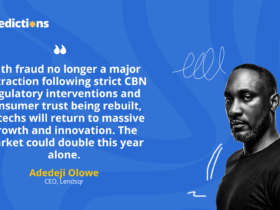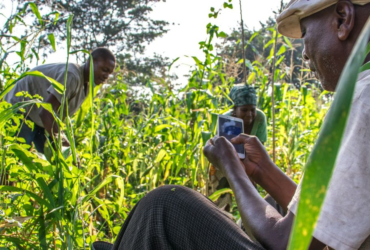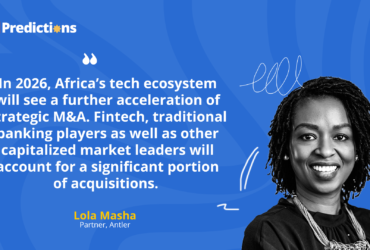Africa’s agricultural potential is enormous. The continent is home to 60% of the world’s uncultivated arable land and a growing youth population ready to work. In sub-Saharan Africa, smallholder farmers produce up to 80% of the food consumed locally. The continent has the resources and traditional knowledge to transform from a net food importer into a global food supplier capable of feeding the world. Africa’s smallholder farming practices, such as crop diversification, soil enrichment, and agroforestry, build healthy soils that boost productivity and sustainability, which can lead to a food systems revolution that reverses the current global food dynamic and secures a sustainable future for all.
Yet, Africa still imports over $50 billion in food annually, and 30–50% post-harvest losses cost more than $4 billion each year, enough to feed 1.6 billion people. These losses aren’t just about production or climate but result from how food is moved, stored, and managed after harvest.
At the core is a system failure: fragmented, underdeveloped logistics overlooked by policy and investment. To improve food security, logistics must be reimagined as a data-driven system enabling better coordination, decision-making, and visibility across the supply chain.
The first and middle miles are the weakest link
My path to logistics began in the fields by trading commodities, chasing trucks, and watching entire harvests spoil due to poor storage or delayed pickups. One failed delivery, 100 metric tons of yellow sorghum, lost to rot, cost a farmer his income, cost me my client, and exposed the deeper issue: it wasn’t production holding us back; it was logistics. That moment led to the inception of Haul247.
A farmer’s yield is only as valuable as their ability to move it to secure storage or market. In much of Africa, smallholder farmers depend on a patchwork of local hauliers, each covering just one leg of the journey. This fragmentation means frequent handovers, no single point of responsibility, and cumulative delays. A farmer in Kaduna, for example, might hire three different truckers to an aggregation point, then a storage facility, then the market, with each handover adding 6–12 hours, compounding spoilage, loss, and costs. Most operations still rely on disconnected providers for haulage and warehousing, especially in the “first and middle mile” where more than half of Sub-Saharan Africa’s agricultural losses occur.
The result is a silent attrition of value: farmers lose income, traders absorb risk premiums, consumers pay higher prices, and nutrition outcomes suffer. In some countries, these logistical inefficiencies raise the cost of staple food by as much as 75%, undermining both food access and affordability.
The data advantage
To increase the share of food reaching markets, Africa must recognise logistics as a core development driver, not just physical infrastructure, but digital systems that enhance coordination, visibility, and flexibility.
Roads become unreliable across much of the continent in rainy seasons, and over 90% of freight is handled by small-scale, informal truck operators who often lack digital tools. Logistics platforms must be more than high-tech; they need to be context-aware and designed for Africa’s unique challenges.
Across African markets, logistics operations must contend with realities such as seasonal flooding, rural road conditions, varied vehicle types, and urban congestion. Route optimisation models that incorporate these variables are proving critical to ensuring reliability in supply chains.
The larger shift, however, is occurring upstream, before a truck is dispatched. Predictive analytics enables logistics providers to anticipate demand by analysing order flows, harvest cycles, and weather forecasts. This foresight allows for more efficient allocation of transport and storage capacity, reducing waste, lowering costs, and improving reliability. Crucially, it also expands access to high-value markets for smallholder farmers who have traditionally been excluded from formal supply chains. Haul247 is applying these approaches to the Nigerian context, demonstrating how data-driven logistics can bridge longstanding gaps between production and demand.
In one case, a tomato aggregator in Nigeria was contending with spoilage rates exceeding 25%. By improving dispatch coordination, route planning, and access to storage, supported by data visibility, real-time tracking, and digitised delivery records, losses fell to under 8% within three months.
This result is not an outlier; it reflects a broader shift already underway. Where data flows, food moves. Where systems are visible, supply chains become investable. As digital logistics platforms like Haul247 become integrated into Africa’s agricultural ecosystems, value chain actors will experience measurable improvements in inventory turnover, credit access, and long-term sustainability.
Scaling logistics transformation across Africa requires building connected, tech-driven ecosystems supported by coordinated investment from governments, donors, and the private sector. Midstream infrastructure must integrate digital tools, and platforms like Haul247 should be seen as critical infrastructure. Closing the digital divide and expanding broadband in rural areas is essential.
Given the capital intensity of logistics, covering trucks, cold storage units, and software, targeted financing is key. Regulatory harmonisation under AfCFTA is also key to unlocking regional trade and food security.
The road ahead
By 2050, Africa’s population will double and food demand will triple, making it vital to reduce postharvest losses. Even a 1% cut could yield $40 million annually, directly benefiting smallholder farmers by boosting incomes, lowering food prices, and opening trade opportunities.
Sehinde Afolayan is the CEO and Co-founder of Haul247, a pioneering technology-driven logistics and warehousing platform transforming supply chain operations across Africa. With a deep passion for innovation and operational efficiency, he has leveraged cutting-edge technology to optimise asset utilisation, enhance supply chain transparency, and drive sustainable logistics solutions.
Mark your calendars! Moonshot by TechCabal is back in Lagos on October 15–16! Join Africa’s top founders, creatives & tech leaders for 2 days of keynotes, mixers & future-forward ideas. Early bird tickets now 20% off—don’t snooze! moonshot.techcabal.com















Leave a Reply